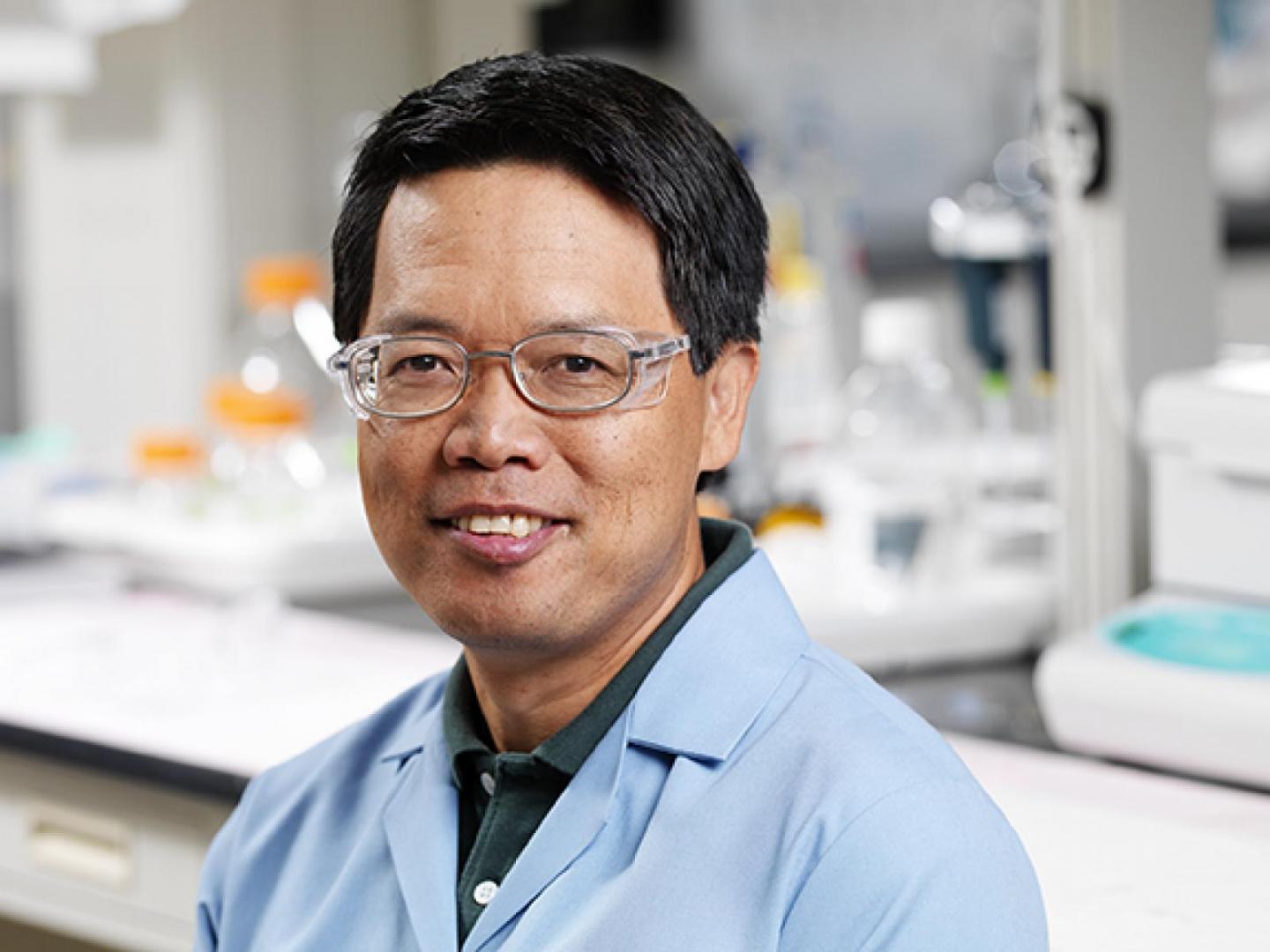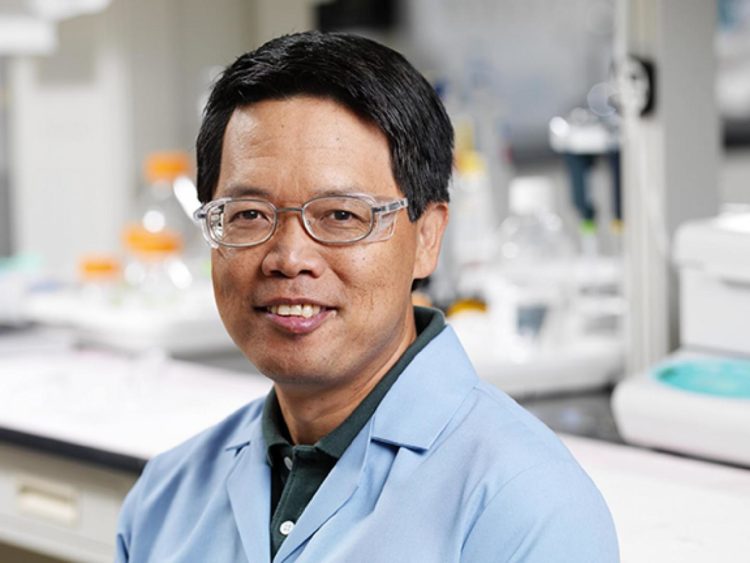
Credit: Photo by PNNL
PULLMAN, Wash. — A precise and non-toxic treatment that targets lung cancer cells at the nanoscale is able to effectively kill the cells even at a low dose.
Researchers from Washington State University and the Department of Energy’s Pacific Northwest National Laboratory (PNNL) used tiny tubes made from organic molecules called peptoids to deliver cancer-killing drugs in a targeted manner.
The research, led by Yuehe Lin, professor in WSU’s School of Mechanical and Materials Engineering, and Chun-Long Chen, a senior research scientist at PNNL and a joint faculty fellow at the University of Washington, was published as the cover story in the prestigious journal Small.
The biologically-inspired nanotubes, which are about a hundred thousand times thinner than a human hair, were rolled up from membrane-like nanosheets. The drug molecules, fluorescent dyes and cancer-targeting molecules were precisely placed within the nanotubes, enabling them to track the efficiency of drug delivery into the cancer cells.
The new technology allows the two drugs – one for chemotherapy and the other for a less-invasive photodynamic therapy treatment – to be delivered directly to the cancer cells. Photodynamic therapy uses a chemical that, when exposed to light, releases reactive oxygen species (ROS) that kill cancer cells. The researchers’ dual-drug approach enabled the use of a lower dose of the cancer drugs than using a single drug, leading to effective killing of cancer cells with low toxicity.
“By precisely engineering these nanotubes with fluorescent dyes and cancer targeting molecules, scientists can clearly locate tumor cells and track how the drug regimen is performing,” said Lin. “We can also track how nanotubes enter and deliver the drugs inside the cancer cell.”
The team tested the nanotubes on lung cancer cells and found that they delivered the chemotherapy drug doxorubicin directly into the fast-dividing cancer cells, resulting in highly efficient cancer killing while using less chemotherapy drugs.
“This is a promising approach for precision targeting with little damage to healthy surrounding cells,” said Lin.
While other nanomaterials, such as carbon nanotubes, have been used to deliver and track cancer-killing drugs, researchers have found that they are toxic to the body. Furthermore, they didn’t do well at precisely recognizing molecules.
“By using these peptoids, we were able to develop highly programmable nanotubes and a biocompatible delivery mechanism,” said Chen. “We also harnessed the high stability of peptoid and its well-controlled packing to develop nanotubes that are highly stable.”
“Due to their unique structure, these nanotubes can be easily assembled for use in cancer therapy and stay in the body longer for treatment,” said Lin.
###
The team is now looking for collaboration and funding opportunities with pharmaceutical companies to extend the research into animal and clinical studies.
WSU and PNNL have filed a joint patent for the technology. The work was funded by the U.S. Department of Energy.
Media Contact
Yuehe Lin
[email protected]
509-335-8523
Original Source
https:/
Related Journal Article
http://dx.





